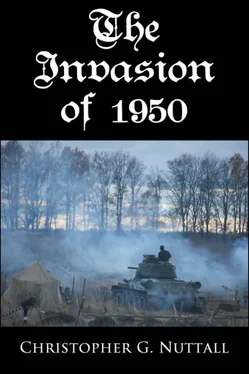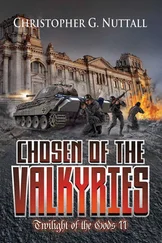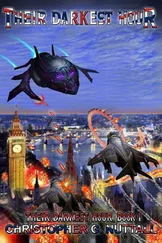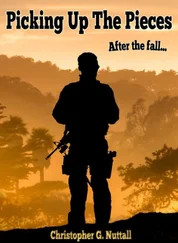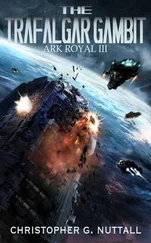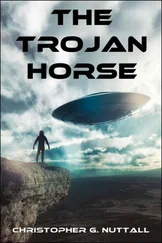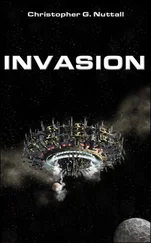The same can be said of Stalingrad, the Germans had extended their supply lines so far that disaster was inevitable at some point. Britain, even if the RAF had been defeated, the Germans would still have faced awesome problems in landing. Kursk and the Bulge came too late to offer Germany any hope of survival. Even if they had been reversed, the Allied economic power would have ground Germany into the dust. D-Day, of all the ones that were listed, had the greatest chance of altering the outcome of the war, but even so, the atomic bomb was on the way, the Allies had massive air superiority, and the Russians were pushing in from the east. A lost D-Day might have altered the final settlement of post-war Europe, but it wouldn’t have saved Hitler’s regime.
The more I looked into the Second World War — and it has exercised a fascination for me since I was a child — the more aware I became of the underlying economic factors that helped to determine the outcome of the conflict. The same factors that proved that Midway was meaningless, a short-cut to victory that the US had no right to expect, also prove that the actions or reactions of the powers involved in the war were often determined by their capabilities, both short- and long-term. The Axis Powers went into the war without the economic bases they needed to sustain their grab for world power and, eventually, lost the war. Japan’s mad decision to attack Pearl Harbour and Hitler’s even madder decision to add the United States to Germany’s list of enemies ensured that the Axis would lose. Where the decisive battle then?
Actually, I think there were two points that might have determined the outcome. The Battle of Moscow may well have been the last chance for the Germans to win the war outright. (Nothing could have saved Japan.) If Germany had won, they would have taken the USSR’s centralised command hub, captured one of the most vital rail and communications hubs, and quite possibly killed Stalin himself. The fall of the city would have shaken the Soviet regime to its foundations, encouraged rebellion against Stalin and the Communists, and made organising resistance much harder. The planners and engineers who made the USSR tick would have fallen into German hands. Without them, the process of salvaging and rebuilding as much of the USSR’s industrial might would have been almost impossible. Stalin or his successor might even have done a deal with Hitler to save what they could…
The second decisive battle is far less well known. Nomonhan. It is not a name to conjure with in the West, and yet it might have been far more important than it seemed back in 1939. The conflict started in earnest in late May 1939. A Japanese force, the Yamagata detachment, was sent by the Kwantung Army to defeat a Soviet unit that had crossed the Halha River into what the Russians believed was Soviet territory but the Japanese claimed as their own. It ended in a sudden Japanese disaster, as an entire regiment in the detachment was encircled and annihilated
The Kwantung Army - much against the will of Tokyo - decided to retaliate in force, and committed a full Infantry Division, the 23rd, and a number of additional units, among others two tank regiments. Japanese Army Air Force Units, which had missed most of the 1937 combat in China, also got to show themselves against the Soviet Union’s massive air force. The Soviets also gathered a fairly large force, including veterans of the Spanish Civil War. (Many of those experienced leaders were purged between 1939 and 1941 and were not available to face the Luftwaffe during Barbarossa.)
The Japanese attacked in the beginning of July, the 23rd Division crossing the upper reaches of the Halha while the mechanized elements struck directly at the Soviet forces on the right bank of the river. After some initial gains, large Soviet mechanized forces counter-attacked, and the Japanese were stopped some 3-4km:s from the Halha, their lightly equipped armour regiments shot to pieces by swarms of Soviet BT tanks. The Japanese renewed their offensive in late July, their forces then reinforced by heavy artillery from the homeland. This time the attackers were stopped dead in their tracks by the Soviet defenders. Then the battered Japanese dug in and waited for the Russians to make the next move.
It came on August 20th. Again the Japanese had underestimated the Red Army and its strength. It was a sort of dress-rehearsal for that masterly type of mass-attack that later would shatter the German Wehrmacht : heavily supported by both artillery and aircraft, numerically superior Soviet forces - spearheaded by mechanized units - penetrated the Japanese front on the Halha. Despite the Japanese reinforcements that were being rushed to the border, it was over in 10 days. The war in Europe came (the German invasion of Poland) before the Russians could exploit their victory, and the middle of September both sides finally agreed to a ceasefire. The Japanese had been soundly thrashed. In hindsight, it is hard to see how the Japanese thought they could win.
Stalin’s great fear, in fact, was that the Japanese would resume the offensive during 1941 and stab the Russians in the back. The Japanese, still stung, did nothing of the sort and instead headed south, towards Pearl Harbour. Stalin kept a large force on the border anyway and only reluctantly drew it down to send some of the toughest and most experienced units west to face the Germans at Moscow. What might have happened if the Japanese had attacked Russia instead?
This became the core idea of The Invasion of 1950 . The Japanese avoided their thrashing at Nomonhan by not engaging the Soviet Union. The conflict wasn’t one that was inevitable in any sense of the word; they could have avoided it quite easily. Without that lesson, they decided to settle scores with Stalin at the USSR’s most dangerous moment and advanced northwards against Russia. This didn’t get very far — the balance of power didn’t change much — but it cost the Russians the Battle of Moscow. Hitler’s forces, instead of poking down towards Stalingrad, spent the first few months of 1942 rounding up the remainder of the Red Army in the area and then opening up links with Iran. More importantly, neither Japan nor Germany are at war with America… and slowly, ever so slowly, America slips back into isolation. The war has bankrupted Britain and without American help, it’s impossible to win, so, in the end, the British accept an armistice before German power builds up to a level where it can crush the British Empire. Seven-odd years onward, Germany decides to reopen the war…
Or maybe not. Alternate History is full of time-lines that are no more or less plausible than anything we have in the original time-line It serves as the setting for a story and I hope that you enjoyed reading it.
Christopher Nuttall, 2008
http://www.chrishanger.net
http://chrishanger.wordpress.com/
http://www.facebook.com/ChristopherGNuttall
All Comments Welcome!
